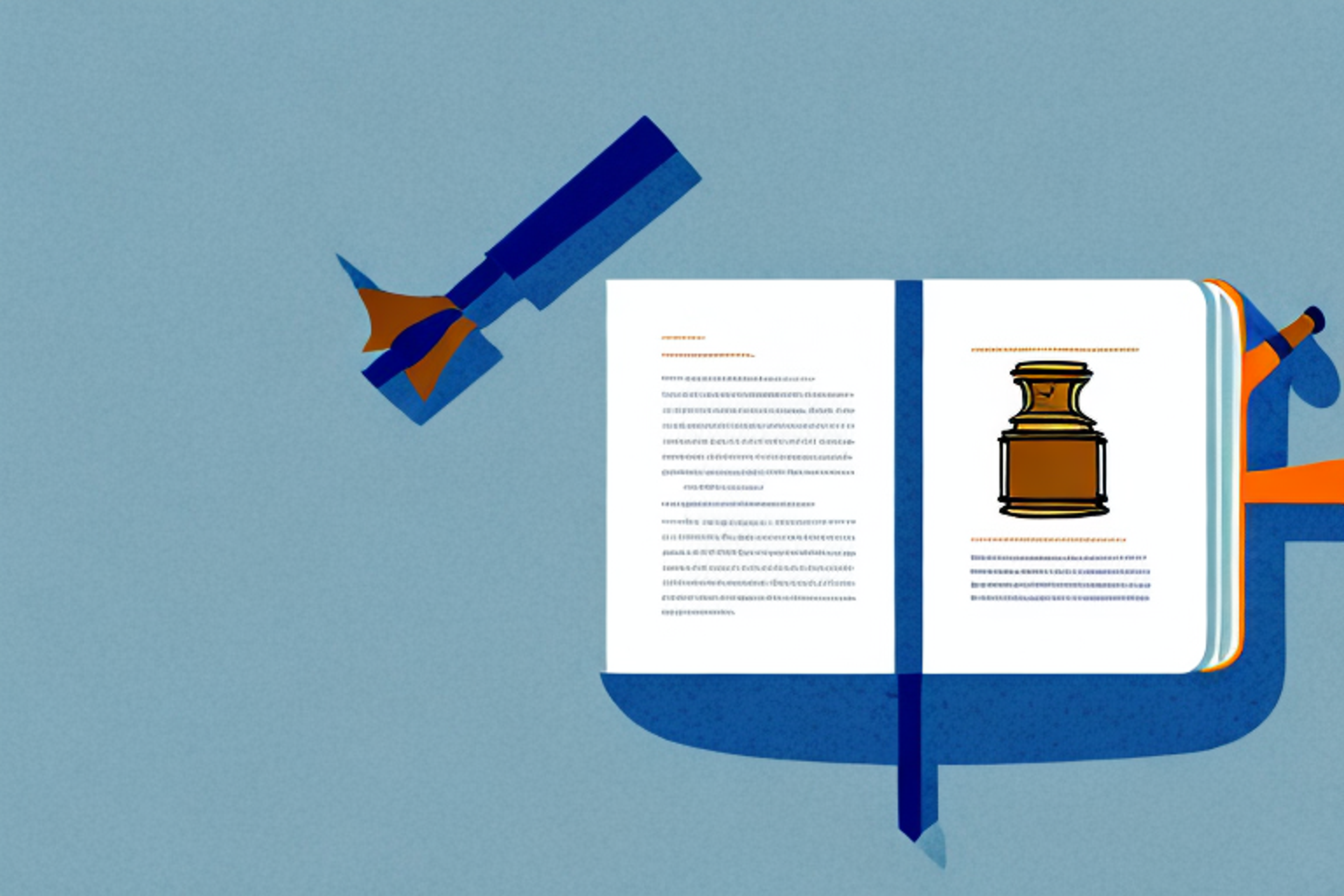Recommendation Letter for Law School Sample: Crafting a Compelling Reference
Crafting a compelling recommendation letter for law school can be a daunting task, but with our sample and tips, you can create a standout reference that showcases the applicant's strengths and potential.
Posted June 13, 2025

Table of Contents
When applying to law school, a strong recommendation letter can be the difference between acceptance and rejection. The admissions committee wants to see that you have a track record of academic success, as well as the potential to succeed as a lawyer. In this article, we will explore the key elements of a strong law school recommendation letter and provide you with a comprehensive guide to crafting your own compelling reference.
Why a Strong Recommendation Letter is Crucial for Law School Admissions
A law school recommendation letter provides the admissions committee with a unique perspective on your academic and personal qualities. It allows them to get to know you beyond the statistics and achievements listed on your application. A strong recommendation letter can help the committee understand your character, motivation, and potential as a law student and future lawyer.
Understanding the Purpose and Requirements of a Law School Recommendation Letter
Before you ask someone to write your recommendation letter, it's important to understand the purpose of the letter and what the admissions committee is looking for. Generally, a law school recommendation letter should cover your academic performance, intellectual abilities, personal qualities, and potential for success in law school.
Your recommender should also be aware of any specific requirements or guidelines set by the school. For example, some schools may ask recommenders to rate you on a scale or provide specific examples of your leadership or teamwork skills.
In addition to the above, it's important to choose a recommender who knows you well and can speak to your strengths and accomplishments. This could be a professor, employer, or mentor who has worked closely with you and can provide specific examples of your abilities.
It's also a good idea to provide your recommender with any relevant information about yourself, such as your resume or personal statement, to help them write a more comprehensive letter. Finally, be sure to thank your recommender for their time and effort in writing the letter, as it can be a significant undertaking.
Tips for Choosing the Right Person to Write Your Law School Recommendation Letter
Choosing the right person to write your law school recommendation letter is critical. You want someone who can speak to your academic strengths and personal qualities, and who knows you well enough to provide specific anecdotes and examples. Ideally, you should choose a professor, employer, or mentor who has worked with you closely and can provide a detailed and personalized recommendation.
It's also important to consider the reputation and credibility of the person writing your recommendation letter. Admissions committees may give more weight to letters written by individuals who are well-respected in their field or have a strong academic background. Additionally, you should make sure that the person you choose has the time and willingness to write a thoughtful and thorough letter on your behalf. It's always a good idea to ask potential recommenders if they feel comfortable writing a strong letter of recommendation for you before you officially ask them to do so.
How to Request a Law School Recommendation Letter from Your Recommender
Once you have chosen your recommenders, it's important to approach them in a professional and respectful manner. You should ask them in person if possible, or by email if not. When making your request, be sure to explain why you are applying to law school and why you have chosen them as a recommender. Provide them with any relevant information or materials they may need, such as your resume or a list of your achievements.
It's also important to give your recommenders enough time to write a strong letter. You should ask them at least a month before the deadline, and provide them with a clear deadline for when the letter is due. You may also want to follow up with them a week or two before the deadline to ensure that they have everything they need and are on track to submit the letter on time.
Finally, it's a good idea to thank your recommenders for their time and effort. You can do this in person, by email, or by sending a handwritten note. Let them know how much you appreciate their support and how much their letter means to you. This will not only show your gratitude, but also help to maintain a positive relationship with your recommenders for the future.
What to Include in Your Request for a Law School Recommendation Letter
When requesting a letter of recommendation, it's important to provide your recommender with specific instructions and information. You should include the name and address of the school(s) you are applying to, the deadline for submission, and any specific requirements or guidelines set by the school. You should also provide your recommender with any relevant information about yourself, such as your academic record, extracurricular activities, and future career goals. The more information you provide, the better your recommendation letter will be.
In addition to the above information, it's also important to establish a good relationship with your recommender. This means that you should approach them well in advance of the deadline, and ask them if they are willing to write a letter of recommendation for you. You should also provide them with a copy of your resume or CV, so that they can get a better understanding of your background and experiences. Finally, it's always a good idea to thank your recommender for their time and effort, and to keep them updated on your application status.
The Dos and Don'ts of Writing a Compelling Law School Recommendation Letter
If you have been asked to write a law school recommendation letter, there are certain dos and don'ts you should keep in mind. Do focus on the applicant's academic and personal strengths, and provide specific examples or anecdotes to back up your claims. Don't exaggerate or oversell the applicant's abilities, as this can come across as untruthful and damage their chances of acceptance. Do use a professional and respectful tone, and avoid any personal biases or prejudices.
Another important aspect to consider when writing a law school recommendation letter is to make sure you are familiar with the specific requirements and expectations of the law school the applicant is applying to. This can include the types of courses or experiences the school values, as well as any specific qualities or characteristics they are looking for in their applicants. By tailoring your letter to the specific school, you can help the applicant stand out and increase their chances of acceptance.
How to Format and Structure Your Law School Recommendation Letter
A well-written law school recommendation letter should be structured in a clear and organized manner. It should include an introduction that states your relationship to the applicant and why you are writing the letter, a body that outlines the applicant's strengths and potential, and a conclusion that summarizes your recommendation and encourages the committee to accept the applicant. It should also be formatted in a professional manner, with proper salutations and sign-offs.
In addition to the structure and formatting, it is important to provide specific examples and anecdotes that illustrate the applicant's skills and abilities. This can help to make the letter more compelling and memorable for the admissions committee. It is also important to be honest and genuine in your recommendation, as exaggerating or misrepresenting the applicant's qualifications can ultimately harm their chances of acceptance. Finally, be sure to proofread and edit your letter carefully to ensure that it is free of errors and conveys your message effectively.
Examples of Strong Opening and Closing Statements for a Law School Recommendation Letter
One way to make your law school recommendation letter stand out is to craft strong opening and closing statements. Your opening statement should be attention-grabbing and explain why you are qualified to write the letter. Your closing statement should summarize your recommendation and encourage the committee to accept the applicant. Here are some examples of strong opening and closing statements:
Opening statement: "As a law school professor with over 20 years of experience, I am thrilled to write this recommendation for John Doe, one of the most exceptional students I have ever had the pleasure of teaching."
Closing statement: "In summary, I cannot recommend Jane Smith highly enough for admission to your esteemed law school. She has all the academic and personal qualities required for success in law school and beyond, and I am confident that she will make a valuable contribution to your community."
It is important to note that your opening and closing statements should be tailored to the specific applicant and their strengths. Avoid using generic statements that could apply to any applicant. Instead, highlight specific examples of the applicant's achievements and qualities that make them a strong candidate for law school. This will make your recommendation letter more compelling and memorable to the admissions committee.
Key Qualities and Skills to Highlight in Your Law School Recommendation Letter
When writing a law school recommendation letter, there are certain key qualities and skills that you should highlight. These include intellectual ability, critical thinking skills, writing and communication skills, leadership and teamwork abilities, and a strong work ethic. You should provide specific examples and anecdotes that demonstrate the applicant's excellence in these areas.
Common Mistakes to Avoid When Writing or Submitting a Law School Recommendation Letter
There are several common mistakes that you should avoid when writing or submitting a law school recommendation letter. These include submitting a generic or impersonal letter, exaggerating or overselling the applicant's abilities, including personal biases or prejudices, and missing the deadline or submitting an incomplete letter. To avoid these mistakes, be sure to read the instructions carefully and take the time to craft a personalized and well-written letter.
How to Follow Up with Your Recommender After They've Written Your Law School Recommendation Letter
After your recommender has written your law school recommendation letter, it's important to follow up with them to ensure that the letter has been submitted correctly and on time. You should thank them for their time and effort, and provide them with any updates on your application or future plans. You should also offer to provide them with a copy of your application and any feedback or advice you receive from the admissions committee.
Final Tips for Crafting an Effective and Persuasive Law School Recommendation Letter
To craft an effective and persuasive law school recommendation letter, you should take the time to understand the purpose and requirements of the letter, choose the right recommender, provide them with specific instructions and information, and avoid common mistakes. You should also focus on highlighting the applicant's key qualities and skills, and provide specific examples and anecdotes to back up your claims. Remember, a strong recommendation letter can make all the difference in a highly competitive law school admissions process.












